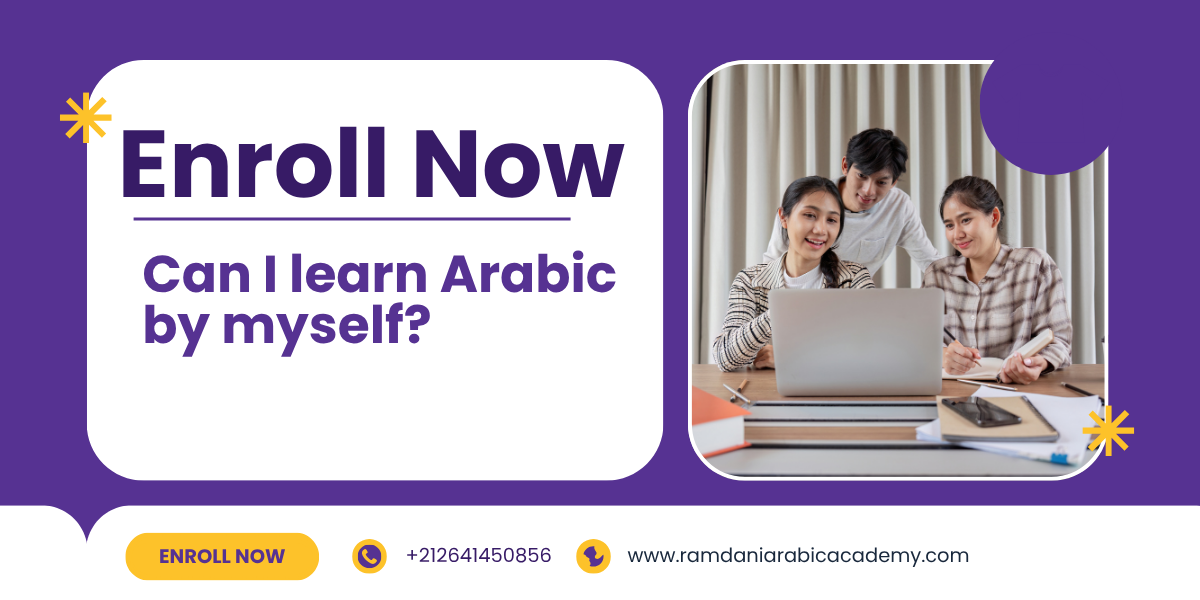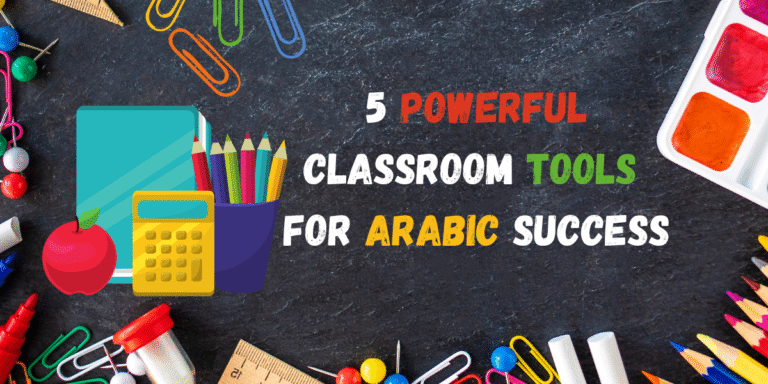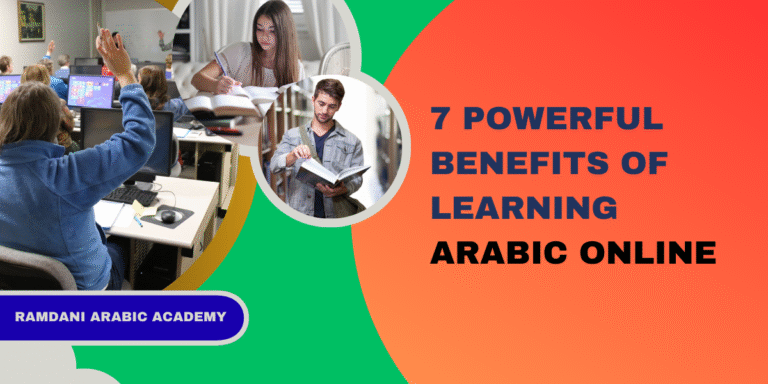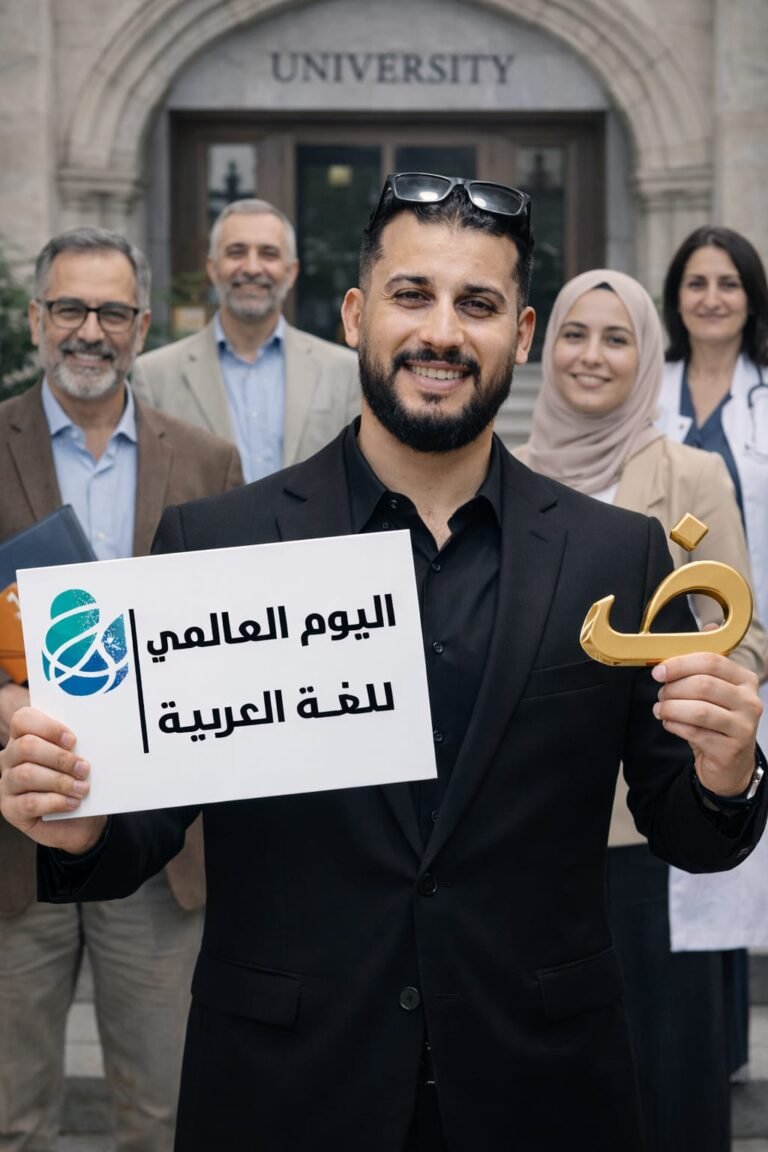Can I learn Arabic by myself in 26? The best advice
Learning a new language is never easy. Arabic, with its rich history, complex grammar, and unique script, can feel even more challenging. Many people wonder if it is possible to learn Arabic on their own without a teacher or formal classes. The answer is yes, but it requires strategy, patience, and dedication. Learning Arabic by yourself is a journey that can be deeply rewarding, but it also comes with obstacles that you need to understand before starting.
Arabic is not a single language in the way that English or Spanish are. It has several forms: Modern Standard Arabic, which is used in writing, news, and formal settings; Classical Arabic, the language of the Quran and historical texts; and the various spoken dialects, which differ from region to region. This complexity often intimidates beginners, but it also offers flexibility. You can choose to focus on the form of Arabic that best suits your goals. For example, if you want to read newspapers, follow modern media, or write essays, Modern Standard Arabic is essential. If your goal is to communicate with people in Egypt, Morocco, or Saudi Arabia, learning the dialect specific to that region will be more practical.
Self-learning Arabic requires a different approach than classroom learning. You have to create a structured plan, find reliable resources, and practice consistently. Many learners struggle because they rely solely on textbooks or apps without immersing themselves in real language use. True progress comes when you combine reading, listening, writing, and speaking exercises. Watching Arabic shows, listening to podcasts, reading articles, and trying to write in Arabic every day can make a huge difference. Consistency and daily exposure are key.
Motivation is another crucial factor. Learning Arabic alone can be lonely at times. Without a teacher or classmates, it is easy to feel stuck or frustrated. Setting clear goals, tracking your progress, and celebrating small victories can keep your motivation alive. Using online communities, forums, and language exchange partners can also create a sense of connection and accountability.
Many people underestimate the role of cultural context in learning Arabic. The language is deeply connected to history, religion, and daily life in Arabic-speaking countries. Understanding cultural references, common expressions, and social etiquette can make your learning more meaningful and help you communicate more naturally. Self-learners who take the time to explore Arabic culture alongside the language often make faster progress and enjoy the process more.
Learning Arabic by yourself is not impossible, but it is a challenge that demands discipline and smart strategies. In the next sections, we will explore the specific methods, resources, and practices that can help you succeed, along with tips to avoid common pitfalls. We will also discuss how online platforms like Ramdani Arabic Academy can support your journey, offering lessons, courses, and guidance tailored for learners at all levels.

Part 1: Methods and Strategies for Learning Arabic on Your Own
Learning Arabic alone requires planning. Without a teacher guiding you, it is easy to feel lost. The key is to combine different methods and stick to a routine. Here are the main approaches you can use.
1. Start with the Alphabet and Pronunciation
Arabic script is different from Latin alphabets. Learning the letters and how to pronounce them is the first step. Focus on writing each letter and recognizing its forms in different positions. Practice pronunciation daily. Listening to native speakers and repeating aloud helps train your ear and your tongue. Apps and YouTube videos can assist, but always pair them with consistent practice.
2. Build Vocabulary Gradually
Memorizing lists of words alone is not enough. Use words in context. Start with everyday topics like greetings, numbers, food, and family. Create flashcards, write short sentences, or label items in your home with Arabic words. Repetition is essential, but practicing words in real sentences makes them stick.
3. Learn Basic Grammar
Arabic grammar can seem complex at first. Focus on the essentials. Learn how verbs change with tense and person, understand pronouns, and practice forming simple sentences. Do not try to master every rule at once. Build your grammar step by step, and practice by writing short paragraphs and correcting your mistakes.
4. Listen and Speak
Listening and speaking are the skills most self-learners neglect. Watch Arabic videos, listen to podcasts, and repeat sentences. Shadowing, where you repeat what a speaker says in real time, improves pronunciation and fluency. Language exchange apps can connect you with native speakers for conversation practice. Speaking regularly helps you internalize vocabulary and grammar faster than reading alone.
5. Read and Write Regularly
Start with simple texts: children’s books, short articles, or beginner blogs. Reading reinforces vocabulary and grammar. Writing forces you to recall words and structures actively. Start with short paragraphs about your day or interests. Gradually increase complexity. Keep a journal in Arabic to track your progress.
6. Use Technology Wisely
Online tools are useful but must be used carefully. Apps, websites, and YouTube channels provide structure, pronunciation guides, and interactive exercises. However, avoid relying on them exclusively. Combine apps with reading, listening, and writing to develop all skills.
7. Stay Consistent and Patient
Arabic takes time. Set realistic daily or weekly goals. Short, consistent sessions are more effective than long, infrequent study marathons. Track your progress and adjust your methods as needed. Celebrate small milestones like reading your first article or holding a short conversation.
By combining these strategies, you create a balanced approach. Each skill reinforces the others. Reading helps writing. Listening improves speaking. Grammar guides your sentences. Vocabulary allows you to express ideas. This integrated method is the foundation of successful self-learning.

Part 2: Common Challenges and How to Overcome Them
Learning Arabic on your own is rewarding, but it comes with difficulties. Recognizing these challenges and knowing how to tackle them can make your journey smoother.
1. Feeling Overwhelmed by Complexity
Arabic has a unique script, sounds unfamiliar to many learners, and complex grammar. Beginners often feel frustrated and unsure where to start.
Solution: Break your learning into small, manageable steps. Focus on one skill at a time: letters, basic vocabulary, simple sentences. Celebrate each small success. Over time, these small steps build confidence and competence.
2. Difficulty with Pronunciation
Arabic has sounds that do not exist in many other languages. Mispronunciation can make words unintelligible.
Solution: Listen to native speakers as much as possible. Repeat phrases aloud. Use audio resources, podcasts, and videos. Record yourself speaking and compare it to native pronunciation. Practicing daily, even for 10–15 minutes, improves clarity over time.
3. Lack of Speaking Opportunities
Self-learners often struggle with speaking because they do not interact with native speakers.
Solution: Join online language exchange platforms or social media groups where Arabic learners and speakers interact. Even short conversations weekly improve confidence and fluency. Try speaking to yourself in Arabic or describing your day out loud.
4. Losing Motivation
Without a teacher or classmates, progress may feel slow, leading to discouragement.
Solution: Set clear, achievable goals. Track progress visually, like checking off vocabulary lists or writing practice. Reward yourself for milestones, like reading your first article or completing a lesson. Join online communities for support and encouragement.
5. Understanding Dialects vs. Standard Arabic
Arabic has many dialects. Learning the wrong one for your goals can be frustrating.
Solution: Decide early whether your focus is Modern Standard Arabic for reading and writing or a regional dialect for conversation. If possible, combine both: learn basic MSA grammar and vocabulary while practicing your chosen dialect for speaking.
6. Overreliance on Technology
Apps and online courses are helpful but cannot replace active practice. Many learners rely only on apps and see slow progress.
Solution: Balance digital tools with real-life practice. Read articles, watch shows, write short essays, and speak daily. Treat apps as supplements, not the core of your learning.
7. Forgetting What You Learn
Arabic vocabulary and grammar can be forgotten quickly if not practiced regularly.
Solution: Use spaced repetition systems for vocabulary. Review old lessons frequently. Incorporate Arabic into your daily life: label objects at home, write your shopping list in Arabic, or summarize your day in a few sentences.
By anticipating these challenges and using practical solutions, self-learners can stay on track and maintain steady progress. Challenges are part of the process, not obstacles to success. Learning Arabic alone is achievable with planning, discipline, and consistent effort.

Part 3: Resources and Tools for Self-Learning Arabic
Choosing the right resources is crucial when learning Arabic by yourself. With so many options, beginners often feel lost. Combining multiple tools and methods provides balance and supports all aspects of learning: reading, writing, listening, and speaking.
1. Textbooks and Workbooks
A solid textbook helps build a structured foundation. Look for books that include exercises, explanations of grammar, and vocabulary lists. Workbooks allow you to practice actively rather than just passively reading. Start with beginner-friendly series and progress gradually to intermediate and advanced levels.
2. Online Courses and Websites
Web-based platforms offer flexibility. They provide lessons, quizzes, audio, and video materials you can access anywhere. Online courses often combine grammar, vocabulary, and speaking practice. Some even include interaction with instructors for guidance.
3. Language Apps
Apps are helpful for building vocabulary and practicing daily. Spaced repetition and interactive exercises make learning efficient. Use apps for review, but don’t rely on them exclusively. Combine app practice with reading, writing, and listening exercises for balanced skill development.
4. Videos and Podcasts
Watching shows, YouTube videos, or listening to Arabic podcasts exposes you to natural speech and cultural context. Start with simple content and gradually move to more complex material. Listening daily helps with pronunciation, comprehension, and fluency.
5. Writing and Journaling
Writing exercises improve retention of vocabulary and grammar. Keep a daily or weekly journal in Arabic. Start with simple sentences, then move to paragraphs about your day, interests, or opinions. Revisiting your writing helps track progress.
6. Speaking and Language Exchanges
Speaking is often the hardest skill to practice alone. Language exchange platforms, conversation clubs, and social media groups connect you with native speakers. Even brief conversations weekly build confidence, reinforce vocabulary, and improve pronunciation.
7. Ramdani Arabic Academy
Ramdani Arabic Academy is designed to support learners at every stage. Our online courses combine structured lessons with interactive exercises and practical examples. We offer articles, videos, and practice materials that cover Modern Standard Arabic, dialects, and cultural insights. Our courses are flexible, allowing you to study at your own pace while receiving guidance and feedback from experienced instructors.
Ramdani Arabic Academy also provides community support. Learners can interact, ask questions, and participate in discussions. This sense of connection reduces the isolation often felt in self-learning. Whether you want to read Arabic texts, communicate with native speakers, or understand cultural nuances, our academy gives you the tools and guidance to succeed.
By combining self-study methods with structured support from an academy, learners can progress faster, stay motivated, and overcome challenges more effectively. Learning Arabic alone is possible, but having the right resources and guidance makes the journey smoother and more rewarding.
Advice for Self-Learners and How Ramdani Arabic Academy Can Help
Learning Arabic by yourself is challenging but possible. Success depends on consistency, planning, and using the right resources. Focus on building a strong foundation in the alphabet, pronunciation, and basic grammar. Gradually expand your vocabulary, practice speaking, and expose yourself to reading and listening materials every day.
Set realistic goals and track your progress. Celebrate small achievements, like completing a lesson, reading an article, or holding a short conversation in Arabic. Stay patient. Mastery takes time, and setbacks are normal. Consistent practice and a structured approach will pay off over months and years.
Cultural context is as important as language skills. Understanding Arabic culture, expressions, and social norms enhances your learning and allows you to communicate naturally. Combine study with immersion through videos, podcasts, articles, and interactions with native speakers.
Ramdani Arabic Academy is built to support learners at every stage. Our courses, lessons, and articles cover Modern Standard Arabic, dialects, and cultural insights. We provide tools, exercises, and guidance to help you practice all aspects of the language—reading, writing, listening, and speaking. Our community offers interaction, feedback, and support to reduce the isolation of self-learning. Whether your goal is to read Arabic texts, converse fluently, or explore Arabic culture, our academy gives you a structured path to success.
As the founder of Ramdani Arabic Academy, I understand the challenges of learning Arabic alone because I have guided thousands of learners through the process. My goal is to make Arabic accessible, practical, and enjoyable for learners around the world. With dedication, patience, and the right resources, anyone can succeed in learning Arabic.
Start your journey today, take small steps consistently, and use the tools and guidance available. Learning Arabic by yourself is not just a possibility—it can become a rewarding and transformative experience.







